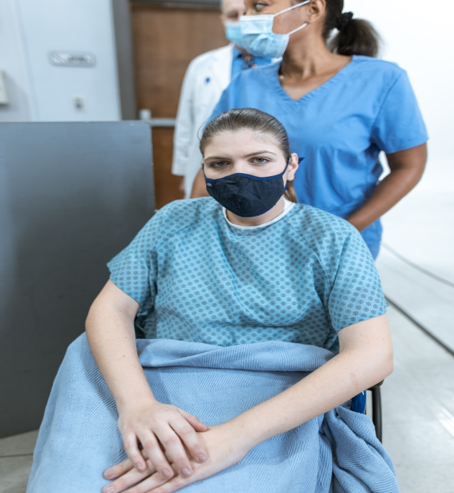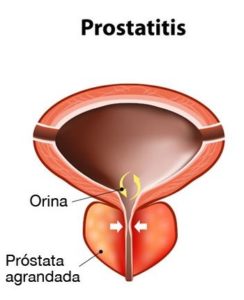What conditions do urologists treat in men? Many people are not aware of what a urologist does. Well, a brief explanation would be that they are specialists in treating disorders of the urinary system in both men and women. They treat all diseases related to the male and female urinary tract system and reproduction system in males.

(Source)
It is essential for patients who have severe conditions such as issues related to kidney, bladder, adrenal glands, and prostate to seek advice and the attention of a urologist.
Today we will discuss further when you should see a urologist and what diseases do they treat in men.
Urology: Its definition
We think we should first briefly discuss what urology is. Some people know urology as genitourinary surgery. It is fair to say that urology is a branch of medicine that concentrates on surgical and medical diseases commonly related to the female urinary tract and the reproductive organs of males.
Continue reading to know when you should consider visiting a urologist.
When should you see a Urologist?
There are specific reasons for when a patient should consider seeing a urologist. If you are facing any condition related to the urinary tract, including your kidneys, adrenal glands, or ureters, you must visit a urologist.
Besides, men who face disorders with their penis, prostate, and the testes should head to the best urologist they know.
What Diseases Does Urologist Look After?
There are many medical and surgical diseases a urologist treats. While some urologists treat common diseases related to the urinary tract, others specialize in a specific type of urology, including urologic oncology.
The Urinary Tract Infections
This is a disease that commonly arises when certain bacteria moves all the way from the digestive system into the urethra. In case you are not sure if you are going through this condition, look out for these symptoms.
- Unusual urination
- Pain
- Leakage of urine
- Vomiting
- Fever and feeling cold ( getting the shivers)
Infertility
This is related to a problem that occurs in the male reproductive system. Reasons for the cause of this condition are as follows
- A low sperm count
- The mobility of the sperm isn’t strong and cannot reach the egg
- Unusual sperm, this means the sperm has an unusual shape.
- An enlarged vein in testes
There is no way you can find out this problem by yourself unless you get it checked.
Kidney Disease
Any sort of damage to the kidney can be fatal. Usually, people who suffer from this condition have bad eating habits and other conditions such as diabetes. Symptoms may include the following
- Swelled hands and ankles
- Blood pressure is high
Therefore, a visit to a urologist would be the best option for early diagnosis and treatment of this condition. Urologists also conduct kidney transplants in cases of kidney failure.
Cancer
Urologists also have expertise in treating various cancers in men. For instance, in cases where the patient develops cancer in the bladder, prostate glands, testes, or kidneys, they must get the treatment from a urologist.
Enlarged Prostate
This is a condition that affects many men as they grow older. Due to prostate gland enlargement, also called Benign Prostatic Hyperplasia (BPH), you may experience problems with urination. Frequent need to urinate, difficulty starting urination, bladder, kidney, and urinary tract problems are a few symptoms.
Other Conditions
Besides the diseases mentioned above, urologists also treat some other conditions in men, including
- Erectile dysfunction (if you face trouble keeping or getting an erection)
- Prostatitis, i.e., inflammation of the prostate gland
- Painful bladder syndrome
- Kidney stones
- Enlarged veins in the scrotum (varicoceles)
Why Is It Important To See a Urologist?
Well, as you can see, there are so many diseases that urologist treats. Make sure to consult the best urologist in town if you identify the symptoms that may relate to a severe or even minor condition of the urinary tract or reproductive system.
By avoiding a visit to a urologist, you would only make yourself prone to worsening your condition even more. Therefore, make sure to visit a urologist in any of these cases mentioned above for early diagnosis and treatment.
Urologists: Conclusion
Urologist plays an important role in helping us get through such severe diseases. They have all the necessary knowledge and training of years to treat such complex urinary tract and reproductive system issues. Most of the problems can lead to other health complications if not treated timely.
Call Fifth Avenue Urology for a Consultation
If you observe any symptoms related to the urinary tract, make sure to visit the best urologists in NYC. We at Fifth Avenue Urology have highly qualified urologists to help you with all these conditions. Visit our website for more information or to book an in person or telemedicine appointment with our urologists.
FIFTH AVENUE UROLOGY
212-675-3186

 Dr. Larish is a urologist and surgeon treating women and men with a variety of urological conditions. His expertise is in treating complex kidney stones, enlarged prostates (BPH), incontinence, erectile dysfunction, infertility, and urological oncology (prostate, bladder, kidney, and adrenal cancers). He is an expert in general urology and is often consulted for second opinions.
Dr. Larish is a urologist and surgeon treating women and men with a variety of urological conditions. His expertise is in treating complex kidney stones, enlarged prostates (BPH), incontinence, erectile dysfunction, infertility, and urological oncology (prostate, bladder, kidney, and adrenal cancers). He is an expert in general urology and is often consulted for second opinions.










 Erectile dysfunction is something that can have a big impact on your quality of life. You may start to worry that you are unable to satisfy your partner, or that you are going to experience these problems long-term. If you have experienced erectile dysfunction recently or have been seeing these symptoms on a regular basis, rather than just a one-time thing, then you should certainly look into what could be causing it.
Erectile dysfunction is something that can have a big impact on your quality of life. You may start to worry that you are unable to satisfy your partner, or that you are going to experience these problems long-term. If you have experienced erectile dysfunction recently or have been seeing these symptoms on a regular basis, rather than just a one-time thing, then you should certainly look into what could be causing it. Erectile dysfunction is usually caused by things that can be treated easily and do not pose a major risk to your health. However, erectile dysfunction can be a sign of things like cancer, so it is important to have it investigated. If you go and see a urologist, they will be able to establish whether or not your erectile dysfunction has the kind of causes that are usually associated with the condition, and can be treated easily, or whether you may have something that needs further investigation, such as a kind of cancer or something like urethral strictures, which will need surgery.
Erectile dysfunction is usually caused by things that can be treated easily and do not pose a major risk to your health. However, erectile dysfunction can be a sign of things like cancer, so it is important to have it investigated. If you go and see a urologist, they will be able to establish whether or not your erectile dysfunction has the kind of causes that are usually associated with the condition, and can be treated easily, or whether you may have something that needs further investigation, such as a kind of cancer or something like urethral strictures, which will need surgery. Another reason why it is better to contact to a urologist when you are experiencing erectile dysfunction is that urologists are specialists in this part of the body. This means that they will have seen a lot of cases like yours before and will not have any predisposition to judge you for your issues. Sometimes, erectile dysfunction can be caused by mental health issues or simply stress in your lifestyle. However, a urologist will be able to rule out whether or not there is a physical reason why you are experiencing problems getting and maintaining an erection.
Another reason why it is better to contact to a urologist when you are experiencing erectile dysfunction is that urologists are specialists in this part of the body. This means that they will have seen a lot of cases like yours before and will not have any predisposition to judge you for your issues. Sometimes, erectile dysfunction can be caused by mental health issues or simply stress in your lifestyle. However, a urologist will be able to rule out whether or not there is a physical reason why you are experiencing problems getting and maintaining an erection. The leakage of urine with pressure on the urethra and bladder is called the Stress Urinary Incontinence. This can be due to many activities such as exercise, laughing, and sneezing, etc. It depends on how severe it is; you may also leak while doing forceful activities such as walking, standing, and bending over. It is much common in women as compared to men. You can consult a urologist to treat issues like these. Let’s have a look at what treatments can a urologist do to make it perfectly alright.
The leakage of urine with pressure on the urethra and bladder is called the Stress Urinary Incontinence. This can be due to many activities such as exercise, laughing, and sneezing, etc. It depends on how severe it is; you may also leak while doing forceful activities such as walking, standing, and bending over. It is much common in women as compared to men. You can consult a urologist to treat issues like these. Let’s have a look at what treatments can a urologist do to make it perfectly alright.
 This refers to a condition when your prostate gland gets inflamed or infected. It reduces the pathway to the urethra. In addition to this, you will experience pain in your lower back, flu, and bloody urine. Doctors say that bacteria mostly cause this. Usually, antibiotics are prescribed for conditions like these.
This refers to a condition when your prostate gland gets inflamed or infected. It reduces the pathway to the urethra. In addition to this, you will experience pain in your lower back, flu, and bloody urine. Doctors say that bacteria mostly cause this. Usually, antibiotics are prescribed for conditions like these. Men who suffer from urinary continence are also advised to visit a urologist as soon as possible. The symptoms of these are an inability to empty the bladder during urination, accidental urination, and much frequent urination.
Men who suffer from urinary continence are also advised to visit a urologist as soon as possible. The symptoms of these are an inability to empty the bladder during urination, accidental urination, and much frequent urination.

